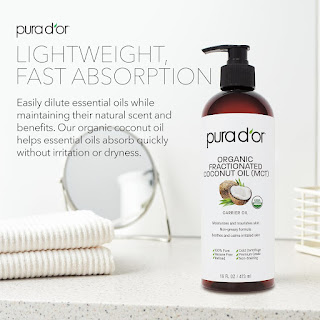Why Coconut Oil Is a Skincare Hero
Coconut oil’s rise to fame isn’t accidental. It’s loaded with medium-chain fatty acids, particularly lauric acid, which has antimicrobial properties and helps fight bacteria that can cause acne and irritation. Additionally, coconut oil is an excellent emollient, making it a great natural option for dry, flaky, or irritated skin.
1. Deep Hydration for Dry Skin
Imagine being in the icy winters of Alaska, where temperatures dip below freezing. For many residents, like Sarah Barnes, a 43-year-old teacher, dry, cracked skin is a relentless problem. She swears by coconut oil as her go-to moisturizer. “I massage a tiny amount into my hands and face every night,” Sarah shares. “By morning, my skin feels soft and looks nourished.”
The secret lies in coconut oil’s ability to penetrate deeply into the skin, providing hydration and creating a protective barrier to lock in moisture.
2. A Natural Makeup Remover
For busy moms like Rachel in Los Angeles, juggling work and family means finding beauty solutions that are quick and effective. Rachel relies on coconut oil as a makeup remover. “Even my waterproof mascara comes off easily,” she says. Coconut oil dissolves makeup effortlessly while leaving your skin feeling soft.
3. Antibacterial Properties for Acne-Prone Skin
For those dealing with occasional acne breakouts, coconut oil may offer unexpected relief. Studies have shown that lauric acid in coconut oil has antibacterial properties, making it effective against acne-causing bacteria. However, it’s not a one-size-fits-all solution (more on this below).
When to Avoid Coconut Oil
While coconut oil offers impressive benefits, it’s not suitable for every skin type or concern. If you have oily or acne-prone skin, using coconut oil on your face could be a recipe for disaster.
1. Comedogenic Concerns
Coconut oil is highly comedogenic, meaning it can clog pores, especially for those with oily skin. Jessica, a 32-year-old New Yorker, learned this the hard way. “I used coconut oil thinking it would clear my acne, but it made it worse,” she says.
To avoid such mishaps, patch-test coconut oil on a small area of your skin before applying it to your face.
2. Sensitivity to Oils
Some individuals may experience irritation or allergic reactions to coconut oil. If your skin feels itchy or develops redness after use, it’s best to discontinue immediately.
How to Use Coconut Oil Effectively
To harness the benefits of coconut oil without compromising your skin:
- Choose Virgin or Cold-Pressed Coconut Oil: Avoid refined versions, as they lack many of the beneficial nutrients found in virgin coconut oil.
- Use Sparingly: A little goes a long way. Apply a pea-sized amount to your skin to avoid overloading your pores.
- Pair with Other Skincare Products: Use coconut oil as a final step to lock in moisture, following lighter products like serums or hyaluronic acid.
Coconut Oil: A Skincare Success Story
Take inspiration from Priya, a 50-year-old entrepreneur in India, who uses coconut oil in her nightly skincare routine. After years of struggling with dry patches, Priya decided to turn to her roots. “Coconut oil has been a part of my family’s skincare routine for generations,” she says. Today, her skin is radiant, and she attributes it to this time-tested remedy.
The Final Word on Coconut Oil
Coconut oil is a natural powerhouse in the beauty world, but it’s not for everyone. Its hydrating and antibacterial properties make it ideal for dry, sensitive, or combination skin, but those with oily or acne-prone skin should proceed with caution.
By understanding your skin’s unique needs and applying coconut oil wisely, you can unlock its incredible potential while avoiding common pitfalls.
So, the next time you’re browsing your beauty cabinet, remember the humble jar of coconut oil—it just might be your skin’s best-kept secret.

.png)


.png)
Comments
Post a Comment